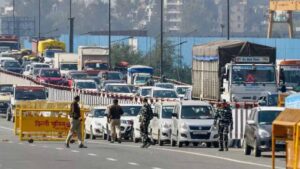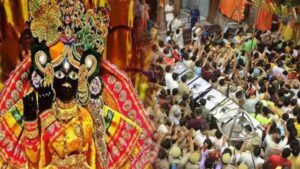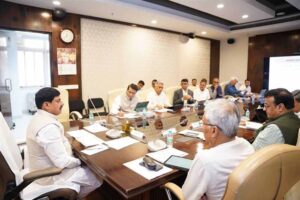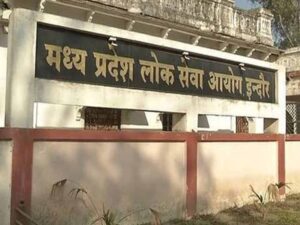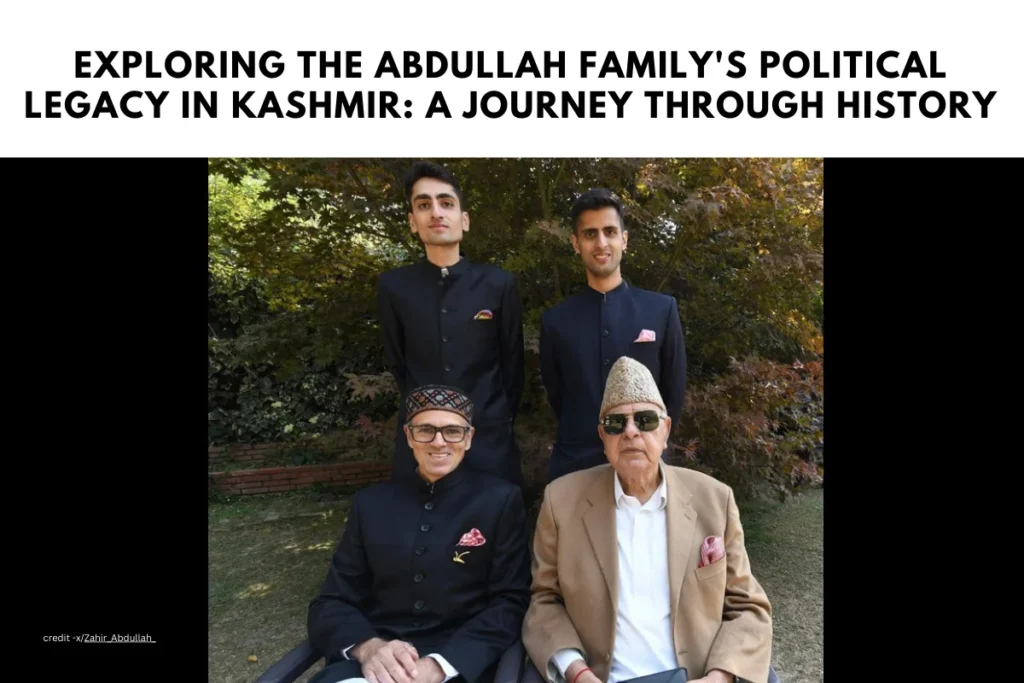
On October 16, 2024, Omar Abdullah took the oath as Chief Minister of Jammu and Kashmir. This marked a significant milestone for one of the region’s most influential political families. The event followed years of political upheaval, especially after the abrogation of Article 370. The Abdullah family’s impact on Kashmir’s politics remains profound.
Sheikh Abdullah: The Visionary Leader of Modern Kashmir
Sheikh Mohammad Abdullah, known as the “Lion of Kashmir,” started the Abdullah legacy. In 1930, he founded the Reading Room Party to address the concerns of Muslims under Maharaja Hari Singh’s rule. In 1932, he transformed this initiative into the Jammu and Kashmir Muslim Conference. This party advocated for justice, equality, and social reforms.
In 1939, Sheikh Abdullah rebranded the party as the Jammu and Kashmir National Conference (NC). He broadened its appeal to include Hindus, Sikhs, and other communities. His focus on land reforms, secularism, and democracy aimed to create a more inclusive society. His vision significantly contributed to the region’s integration into India during the independence movement.
Farooq Abdullah: Navigating Political Turbulence
After Sheikh Abdullah’s passing, his son Farooq Abdullah took charge of the National Conference. He became Chief Minister in 1982 and led the state through turbulent times. The 1990s brought a rise in militancy, destabilizing the region. Despite these challenges, Farooq remained dedicated to dialogue and reconciliation.
Farooq Abdullah’s pragmatic approach kept the NC relevant during significant political changes. He focused on advocating for Jammu and Kashmir’s special status and promoting regional autonomy within India.
Omar Abdullah: A New Generation of Leadership
Omar Abdullah, Sheikh Abdullah’s grandson, emerged as a representative of a new political generation in the late 1990s. He first became Chief Minister in 2009, emphasizing economic development, youth engagement, and infrastructure improvements. However, his leadership faced major challenges during the 2010 protests.
The abrogation of Article 370 in 2019 marked a turning point in Kashmir’s political history. Omar was detained with other leaders but emerged as a strong advocate for restoring statehood and protecting Kashmiri rights. Initially reluctant to join Union Territory elections, he eventually led the NC in the 2024 elections. His victory reflected the public’s demand for regional representation.
The Next Generation: Prospects of Continuity
As Omar Abdullah resumes his role as Chief Minister, attention shifts to his sons. They are seen as potential heirs to the family’s political legacy. Though they have yet to actively enter politics, their future involvement could introduce fresh perspectives and address longstanding issues, ensuring the family’s legacy continues.
Conclusion: A Legacy of Resilience and Adaptation
The Abdullah family has been a cornerstone of Jammu and Kashmir’s political landscape for nearly a century. From Sheikh Abdullah’s pioneering vision of a secular, democratic society to Farooq’s resilience during political turmoil and Omar’s modernization efforts, their contributions have profoundly shaped the state’s history. As Omar takes on this role again, cautious optimism surrounds the prospects for stability, progress, and a more inclusive future for the people of Jammu and Kashmir.
for more updates follow ANN MEDIA on facebook , X , Instagram and Linkedin




